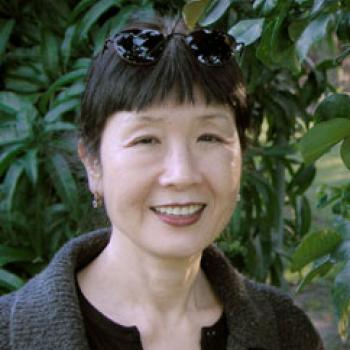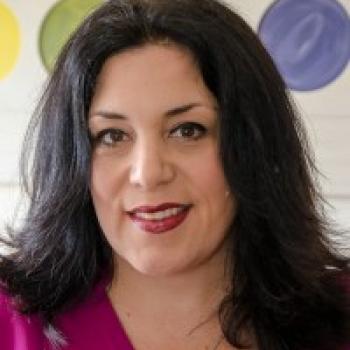
N/NY-RE6199 - Supporting Patients with Parkinson’s Disease Through Art Therapy
-
Register
- Non-member - $40
- Member - $25
Description
“I still have Parkinson’s but, I am also an artist ...The Parkinson’s piece is no longer right in front.”
This controlled exploratory study examined art therapy on symptoms of Parkinson’s disease. Neurological, psychological and art therapy assessments were administered. Treatment considerations will be shared for future research.
Learning Objectives
- Participants will identify two ways art therapy can enhance the visual spatial functioning for patients with Parkinson’s disease.
- Participants will learn clinical considerations for art making for those managing symptoms of stage 2-3 Parkinson’s disease.
- Participants will examine the findings of neurological and artistic changes following 10 weeks of group art therapy sessions.

Dr. Ikuko Acosta
Ikuko Acosta, PhD, ATR-BC, LCAT has been involved in the field of Art Therapy for the past thirty five years as an art therapist, art therapy educator, and finally as the Director of the Art Therapy Program at NYU. Her clinical expertise is with adult psychiatric population, functioned as a stuff art therapist of a diagnostic team in an admissions unit in a county psychiatric hospital in NJ for 17 years. Her main research interest is to develop an aesthetically based pictorial analysis within a framework of psychodynamic approach as well as incorporating new media for therapeutic use.
As an art therapy educator, she has trained several hundred students many of whom are practicing art therapists and art therapy educators both in the US and internationally. Her most recent research interest focuses on the cross-cultural application of the field of art therapy as well as incorporating the internship abroad experience into the course curriculum. In the past 6 years many students have participated in such experiences in Tanzania, Peru, South Africa, Brazil, India, and Bolivia. Her interest in global expansion of the field of art therapy took her to places such as Iceland, Italy, Turkey, Japan, Korea, India, Thailand, Singapore, Taiwan and Argentina. In the past she has served for the membership committee, and educational standard committee in the American Art Therapy Associations. She also served as an editorial member of the American Art Therapy Journal.

Marygrace Berberian
Clinical Assistant Professor
New York University
Marygrace Berberian, MA, MSW, LCAT, ATR-BC, LCSW, is a Clinical Assistant Professor in the Graduate Art Therapy Program at New York University. Marygrace has established school based art therapy initiatives throughout New York City for at-risk children and families for almost 20 years. Ms. Berberian is also the Director of NYU Art Therapy in the Schools program. She led a research initiative examining the impact of art therapy on the self-esteem, affect regulation and impulse control of public school students. She has published work on the use of art therapy for post disaster recovery and also implications for cross-cultural practice. Marygrace has presented at interdisciplinary conferences nationally and internationally.
Marygrace has trained clinicians of other disciplines advocating for the use of the creative arts therapies as a highly efficient treatment modality. She formerly developed and directed the creative arts therapy program at several community based agencies, working with children and adolescents at risk, formerly homeless and mentally ill adults and survivors of cancer. Ms. Berberian is also trained as a Sandplay Therapy Practioner and maintains a private practice in Park Slope, Brooklyn. Currently, Marygrace is a student in the PhD Creative Arts Therapies Program at Drexel University examining artwork created by military service members.